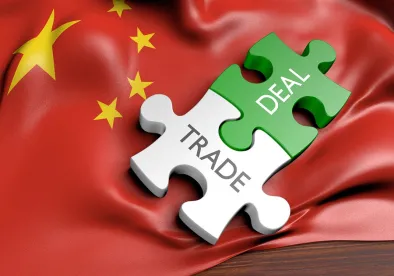American officials continue to raise concerns with China’s perceived long-term goals, which they believe may undermine multilateral institutions, national and sovereign interests, and democratic principles in general. The COVID-19 pandemic has amplified existing concerns with China, and it may serve as the catalyst for further transatlantic cooperation aimed at responding to some of China’s policies. United States (US) Secretary of State Mike Pompeo in remarks this week, suggested, “[T]here is a transatlantic awakening to the truth of what’s happening.” Meanwhile, the European Union (EU) proposed a mechanism for reviewing foreign investments in the bloc. America continues to ratchet down on disruptive acquisitions, while the United Kingdom (UK) currently has an open public comment period on potentially adversarial parties that closes this coming Tuesday, 30 June. Apart from the US, the UK is also seeking trade agreements with Japan, Australia and New Zealand, among others in the Asia-Pacific region. See below for further details on these topics and other notable transatlantic developments this week.
China | US, EU and UK Updates
The Trump Administration believes increased collaboration with transatlantic partners could help address concerns with policies undertaken by the Chinese Communist Party (CCP). On Wednesday, 24 June, National Security Advisor (NSA) Robert O’Brien gave a speech in Phoenix, Arizona, where he criticized the CCP’s vision and growing influence around the world. “The Chinese Communist Party is Marxist-Leninist,” he said. “The party General Secretary Xi Jinping sees himself as Josef Stalin’s successor.” Acknowledging both political parties in the United States have had a wrong approach to China for decades, NSA O’Brien added, “We could not have been more wrong — and this miscalculation was the greatest failure of American foreign policy since the 1930s.”
On Thursday, 25 June, at the German Marshall Fund’s Brussels Forum, via teleconference, Secretary Pompeo suggested the importance of increased collaboration with Europe, saying, “I’m starting to see even more realism on the continent as it relates to the threat of the Communist Party in China. We should address that challenge together – as transatlantic partners have met many challenges.” He added, “The United States is not forcing Europe to choose between the free world or China’s authoritarian vision. China is making that choice between freedom and democracy.” In acknowledging differing opinions on and approaches to multilateralism, Secretary Pompeo said, “[T]hese institutions should be rooted in democratic values, hew to their missions, and reflect the interests of all member states”, while adding, “We should keep protecting multilateral bodies as transatlantic partners.” He further thanked France and the UK for their efforts in a global diplomatic effort he led “to make sure that the next director general of the World Intellectual Property Organization [WIPO] be one who protects intellectual property rights on behalf of the world, not on behalf of China.” Secretary Pompeo also acknowledged, “It’s tempting for many, particularly in our business communities, who make money in China to say we must calm tensions and simply accept an increasingly belligerent CCP. That’s nonsense. I don’t accept that argument.” In the coming weeks, Attorney General William Barr and Federal Bureau of Investigation (FBI) Director Christopher Wray are also expected to give speeches on China.
The United States also continues its pressure campaign against China and other trading partners, seeking to address perceived unfair trade practices. On Wednesday, US President Donald Trump signed a Presidential Memorandum on “Protecting the United States Lobster Industry.” The Memorandum calls out China’s seafood purchasing commitments and agreements to make available exclusions from retaliatory tariffs for imports of US lobster as part of the Phase One trade deal signed earlier this year. In addition to expanding support for those members of the US lobster industry that may be impacted by the retaliatory tariffs, the trade deal requires the US Trade Representative to provide a monthly report on China’s progress in meeting its seafood purchasing agreements under the Phase One deal and the value of Maine and US lobster exports beginning in June 2020. It also directs the US Trade Representative to request a report by the US International Trade Commission on the impacts of the Comprehensive Economic and Trade Agreement (CETA) between Canada and the EU may have had on the American lobster industry.
On Thursday, 24 June, Secretary Pompeo issued a statement noting more countries, companies, and citizens were moving to exclude Huawei as a trusted vendor in developing their 5G infrastructure. He spotlighted the following countries: Czech Republic, Poland, Sweden, Denmark, Estonia, Latvia, Romania and Greece. The State Department also released a list of telecommunications companies that were excluding Huawei that it deemed “Clean Telcos,” including Orange in France and O2 in the United Kingdom.
On Wednesday, 24 June, Axios reported the Pentagon was making public for the first time a list of 20 Chinese companies with operations in the United States found to have links to the Chinese military. President Trump has statutory authority to invoke the International Emergency Economic Powers Act (IEEPA) against these companies operating within the United States, although this authority has not been previously used. It remains unclear whether he will invoke IEEPA in this case, but the public release of the list shines a light on their US operations.
The State Department has also cracked down on Chinese journalists operating in the United States. In February, State notified five Chinese media outlets[1] that they must register as “foreign missions,” pursuant to the Foreign Missions Act, and thereby share information with the US Government on all their US-based employees and properties. These entities had already been required to register with the US Department of Justice as foreign agents under the Foreign Agents Registration Act, similar to Russian media entities RT and Sputnik, which provides some transparency into their efforts to influence public opinion in the country. On Monday, 22 June, State added the US operations of China Central Television, China News Service, the People’s Daily, and the Global Times to the list of “foreign missions.”
Tension also continues to build between China and the EU, fueled in part by the recent cyberattacks on EU hospitals and healthcare institutions. On Monday, 22 June, EU President Ursula von der Leyen and European Council President Charles Michel held a videoconference summit with Chinese President Xi Jinping and Premier Li Keqiang. During the conference, Michel took a harsher approach with China, with particular emphasis on trade tensions, alleged cyberattacks and its treatment of Hong Kong. However, no guarantees were secured and there was no joint press conference to confirm what had been discussed or a formal statement on the EU’s position.
The EU continues to put forward an uneven approach towards tackling tensions with China. On the one hand, von der Leyen views China as a “systemic rival”, and, on the other hand, EU Foreign Policy Chief Josep Borrell has stated the EU does not want to “engage in a kind of systematic rivalry with China.” Von der Leyen made it clear that progress needs to be made on trade in particular with respect to market access barriers and that “in order to conclude an investment agreement, we would need in particular substantial commitments from China on the behavior of state-owned enterprises, transparency in subsidies, and transparency on the topic of forced technology transfers.” The Council and Commission issued a joint declaration laying out their goals and priorities, which appears to be intended to mend differences between the EU institutions rather than to deal with any ongoing disagreements with China. Ultimately, the Chinese did not sign the declaration at the conclusion of Monday’s summit.
Von der Leyen also called out China for targeting EU hospitals and health institutions with cyberattacks during the pandemic stating, “[W]e pointed out clearly that this cannot be tolerated.” This comes after the EU published a report on disinformation campaigns. Michel has also made it clear that, “progress is needed in many areas to rebalance this relationship.” On Wednesday, Chinese diplomats rebutted the EU’s position that the bloc “cannot tolerate” cyberattacks and experts have raised questions about evidence used to back the claims in the report. According to the spokesperson for the Chinese Mission to the European Union “any cyberattack that may hinder the global response to the pandemic should be unequivocally condemned by all” and that “since the beginning of the pandemic, significant phishing and malware distribution campaigns… have been detected, some affecting critical infrastructures that are essential to managing this crisis.” In addition, contributing to some confusion over what evidence the EU has on hacker groups in China, the Chinese spokesperson said that the message delivered during the videoconference “applies to everyone, no matter who is behind it.”
In the United Kingdom, concern with China continues to currently center on the Chinese Government’s new national security legislation for Hong Kong, which the UK (along with other allies, such as the US and EU) claims violates the Sino-British Accord. On 18 June, British Foreign Secretary Dominic Raab said to the media, “Coronavirus and the challenges that it has created has created an opportunity or a perceived opportunity for various different state and non-state actors through cyber, through other means.” This, he said, included China using the pandemic to advance the new national security law. Minister Raab added, “We certainly know Russia is engaged systematically in misinformation and propaganda, through cyber and other ways. Others engage in the same too, China and Iran, but I don’t think it had any outcome on the electoral process in the UK.” The United States has its elections later this year and meddling by external countries, such as China, Russia and Iran, remains a concern for the US Government.
On 25 June, Huawei reported it had received planning permission for a one billion pound research and development facility in England to produce optical equipment used in fiber-optic communication systems. The United States is likely to react negatively to this new development. Meanwhile, British officials are in the process of reviewing how to mitigate any security risks posed by Huawei in its 5G network; a report on the topic is forthcoming.
Foreign Investments | US, UK and EU Approaches
The United States has long had a robust screening regime for foreign investment through the US Committee on Foreign Investment in the United States (CFIUS) approval requirements. CFIUS is an inter-agency committee of the US Government with the authority to review certain foreign investment transactions to assess the national security implications arising from those investments. If CFIUS determines that the investment could threaten national security, it has the authority to impose temporary orders, enter into mitigation agreements, and recommend the President issue an order to prevent any transaction that cannot be mitigated.
Despite the relative status quo regarding the existing foreign investment infrastructure, US leadership has expressed concern at disruptive acquisitions. Of particular concern is the idea that adversaries are using the global economic disruption to acquire businesses critical to the US defense industry. Indeed, the concern is so great that top Pentagon officials publicly indicated they are considering stepping in to stop such transactions. Officials are working with Congress to draft legislation that would better enable the United States to address the growing practice of shell companies acquiring troubled businesses, to the actual benefit of US adversaries.
Specifically, US Department of Defense acquisition officials fear that the larger prime contractors might fall short in pushing funds down the chain to smaller companies, who could otherwise become distressed targets of foreign acquisition. Preventing such issues requires a certain trust-but-verify approach between the defense industry and the government agencies it serves. To that end, Lockheed Martin has already moved some $256 million in early payments to its suppliers, and has promised to grant advance payments of about $450 million in total. BAE Systems has said it will move $100 million into its supply chain, and General Dynamics has moved about $300 million into its vendor base. Northrop Grumman plans to push approximately $200 million into the chain early to keep suppliers afloat, and, during its earnings call, Boeing’s CEO indicated the company is accelerating payments to smaller suppliers.
While there is little doubt that relations between the EU and China have been impacted by the ongoing COVID-19 pandemic, including the EU’s position on the alleged cyberattacks and disinformation campaigns, EU Foreign Policy Chief Borrell has said that China’s move to strengthen its legal grip on Hong Kong has not put investment deals at risk. This contradicts concerns raised by European business groups, who are worried about their commercial ties with Hong Kong. Unlike the US, the EU has not yet taken a hard line on China or attempted to use its leverage as the world’s largest trading bloc. However, on Wednesday the European Commission unveiled its proposal to counter foreign subsidies, including from the US and China. The proposal has been welcomed by many who are seeking to protect the EU’s interests against non-EU states, however, experts have also warned that it risks undermining the single market if not carefully designed. The proposed measures would give the EU the power to impose fines, block acquisitions, or ban companies from participating in public tenders, if it is found that companies seeking involvement are being given an unfair advantage from subsidies provided by non-EU governments.
The Commission hopes that the proposal, if enacted, will ensure a level playing field with European companies. However, there is cause for concern that, if too restrictive, measures could have a negative impact on future investment decisions or possibly reduce foreign direct investments (FDI) in Europe. According to the proposal, the Commission is seeking to clamp down on subsidies of more than EUR 200,000 to companies that are in operation in the single market. In addition, it aims to review deals when a company acquires control over an EU entity, or at least 35 percent of the voting rights. The measures would form part of a new legal instrument that would be operational after agreement by a qualified majority vote, subsequent to a vote from EU lawmakers. While the proposal is aimed at non-EU countries, the primary focus is generally on China, with both French President Emmanuel Macron and German Chancellor Angela Merkel behind the push for more measures at the EU-level to address that country. Frustrations also became evident in the EU’s 2019 communication on China, which reflected measures designed to curb the impact of foreign subsidies.
In light of the ongoing pandemic, stakeholders are concerned with potential “hostile takeovers” and the Commission has been seeking to raise Member States’ awareness of any such FDI transactions. Last year, the EU enacted the FDI Screening Regulation 2019/452 (“Screening Regulation”), establishing a mechanism of cooperation and coordination of national screening procedures for new FDI maintained by Member States. This does not replace Member States’ screening mechanisms and confirms the ultimate power of Member States to admit or introduce restrictions/conditions for new FDI. The Regulation does, however, allow the European Commission and Member States to intervene in national screening procedures and to submit opinions/comments on FDI in Member States that have not been subject to screening but which could have an impact on public order and security in the EU/other Member States. Any interventions of the European Commission or other Member States may affect final decisions with respect to admission to the bloc by Member States. The Screening Regulation enters into force on 11 October 2020. Until its effective date, all national screening mechanisms are carried out individually by the Member States.
In April 2020, Phil Hogan, the EU’s Trade Commissioner, urged national governments to begin “informal cooperation” with the European Commission in advance of the Screening Regulation’s entry into force, citing the need for immediate action to protect Europe’s “strategic assets.” The European Commission has been working to establish an internal procedure within its Director General for Trade for effective implementation of the Regulation.
As a result of the ongoing pandemic and affects to the EU economy, the European Commission published Guidance addressing the application of the Screening Regulation. The Guidance provides some explanations on how Member States should apply the Screening Regulation in practice. It responds to the European Commission’s concerns that EU businesses may be “sold-off” as a result of the ongoing pandemic, affecting EU public order and security. It also emphasises that health facilities and the supply of critical inputs – areas that have been impacted by the pandemic – are enumerated in the Screening Regulation as factors that should be considered and prioritised during screening. For example, the health care and medical sectors are perceived as particularly vulnerable to “hostile” takeovers at this time.
Meanwhile, unlike other European countries, the United Kingdom has made no immediate change to its foreign investment regime in response to the COVID-19 pandemic. Nevertheless, on 8 April 2020, the UK Foreign Affairs Committee announced the launch of an inquiry to examine the process by which the UK Foreign and Commonwealth Office (“FCO”) assesses whether a potentially adversarial party is “seeking to secure significant influence or control over a UK company and in what circumstances the FCO should intervene”. Additionally, the inquiry will focus on “what safeguards are required in the forthcoming National Security and Investment Bill to ensure that the FCO has a full role in the decision-making process in relation to interventions.” The FCO is accepting certain written evidence through 30 June 2020.
EU-UK Trade Talks
On Wednesday, EU Chief Negotiator Michel Barnier met with EU Ambassadors to discuss conclusions of negotiations on a future trade between the EU and the UK. One EU official is reported to have stated that there is not much new in terms of substance and the purpose of the meeting was to reaffirm where things stood at the half-way point in the transition period and to confirm the EU Ambassadors’ trust in Barnier. The conclusions of this meeting are expected to be made public in the coming days.
Meanwhile, the UK has announced its plans to join the Comprehensive and Progressive Agreement for Trans-Pacific Partnership (CPTPP, or “TPP-11”)[2]. The UK is also launching trade agreement negotiations with Australia and New Zealand[3] and is already in formal talks with Japan[4] for a trade deal. Japan is pushing the UK to secure a bilateral trade agreement in six weeks (by the end of July) so Japan’s Diet can ratify the deal this year; talks began two weeks ago via video conference. If the two sides achieve a deal, it will likely not be a comprehensive deal. Both sides are using the existing EU-Japan trade deal, which went into effect in 2019, as a baseline for the talks. The UK is seeking further concessions, including increased market access for UK services and a reduction or elimination of Japanese tariffs on UK goods and agricultural products (such as beef and cheese). Notably, agriculture was a contentious topic for the EU-Japan negotiations (as it is for the US-EU trade talks) and is expected to be a difficult topic for the UK-Japan talks, particularly given the truncated timeline for the bilateral negotiations.
British businesses are overall supportive of the UK Government’s trade negotiation plans, with firms seeking greater market access to the Asia-Pacific region in the form of reduced duties and non-tariff barriers. However, the UK’s opposition party has argued that the government is overplaying the importance of acceptance to the CPTPP deal and that no comparison can be made to staying within the single market.
US-UK Developments
On Wednesday, UK Trade Secretary Liz Truss faced questions from the House of Commons’ International Trade Committee, mostly concerning the impact of any UK-US trade deal on food standards. This comes after US Trade Representative Robert Lighthizer testified last week before congressional trade committees and confirmed that the US is “not going to be in a position where our farmers are treated unfairly” in any eventual trade deal with the UK. He added, “I read their [the UK] press, as I know you do, and the agriculture issues are heating up over there as are a lot of other issues that the United States Congress would not accept in a trade deal.” Any final deal struck between the UK and US will have to garner US congressional approval (both chambers).
According to Truss, “[W]hen it comes to food, we will never lower our standards”. Truss made it clear that food imported from the United States will have to comply with EU food standards, which are now part of UK law as a result of the Withdrawal Agreement between the EU and the UK; that any changes to these standards would require action by the UK Parliament. Truss added, “[N]o deal is better than a bad deal.” It remains to be seen whether the two sides will be able to overcome some of the politicization occurring around some of the negotiating topics, such as US chlorinated chicken and the science behind that practice.
US-EU Developments
The EU is trying to avoid a trade war with America before the US elections in November, despite continued tension over digital taxes (as noted in last week’s report, available here). Some believe the EU may be stalling on the hopes President Trump is not re-elected in November. In any case, relations between the two sides have progressively worsened, with the EU making plans to build even bigger trade defense mechanism. The EU, along with other nations, circumvented the US by establishing an alternative dispute settlement court to the World Trade Organization’s Appellate Body, which lapsed last December and since the United States continues to block efforts to appoint new adjudicators to the body.
However, some bilateral relationships have seen positive developments. Not long after President Trump announced a US troop reduction for Germany, Polish President Andrzej Duda visited the White House on Wednesday to expand further Poland’s bilateral relationship with America. President Duda’s visit also marked the first foreign visitor to return to the White House since lockdowns related to COVID-19 and despite increased COVID-19 cases across several US states. In a joint statement, the leaders recognized the strategic partnership and efforts to deepen cooperation on defense, securing international 5G networks and energy security, among other things.
A White House readout of the bilateral meeting reflected, “President Trump expressed hope that [the] two countries would soon finalize a Defense Cooperation Agreement to enhance military cooperation, further strengthen NATO deterrence, bolster regional security in a post-INF Treaty environment, and protect democracy, freedom, and sovereignty.” At a joint press conference, President Trump addressed questions related to whether he would send some of the troops being removed from Germany to Poland and what signal that sends to Russia. He expressed a willingness to station additional American troops in Poland, saying that increasing troops in Poland sends a strong signal to Russia, while also criticizing Germany for moving forward with the Nord Stream 2 pipeline – noting Poland is not accepting energy from that impending pipeline – and reminding Germany has not met its NATO 2 percent GDP military spending obligation. Reports emerged on Friday that Germany may be considering pressing the EU for a coordinated response to any additional US action against the Nord Stream 2 pipeline, seeking to ensure the project is not shuttered by US sanctions.
Also on Friday, 26 June, the Office of the US Trade Representative (USTR) published a list $3.1 billion worth of goods – such as olives, coffee, chocolate, beer, gin, some trucks and machinery – from the European Union in the Federal Register. USTR is considering whether to expand or increase tariffs related to the ongoing WTO large civil aircraft dispute with the EU, and such action may further exacerbate tensions with the bloc. The public comment period is open until 26 July 2020.
EU Ambassadors are also meeting on Friday to discuss further the bloc’s efforts to reopen Europe’s external borders on 1 July. A New York Times article this week suggested the EU may continue to bar US travelers in light of the spike of COVID-19 cases in America. The article notes the existence of draft lists of acceptable travelers, which include visitors from China, Vietnam, Uganda and Cuba, but not visitors from the United States, Russia or Brazil.
_____________________
[1] Xinhua News Agency, China Global Television Network (CGTN), China Radio International, China Daily Distribution Corp. and Hai Tian Development USA.
[2] The 11 CPTPP members include Australia, Brunei, Canada, Chile, Japan, Malaysia, Mexico, New Zealand, Peru, Singapore, and Vietnam. Neither the EU nor the US are parties to the CPTPP.
[3] On 17 June, the UK published its negotiating objectives for potential free trade agreements with Australia and New Zealand, available here: https://www.gov.uk/government/news/liz-truss-kick-starts-trade-negotiations-with-australia-and-new-zealand.
[4] On 8 June, the UK announced formal talks with Japan, available here: https://www.gov.uk/government/news/uk-and-japan-start-trade-negotiations.
Frank Samolis, Matthew Kirk and Wolfgang Maschek provided insights for this report.









 />i
/>i

